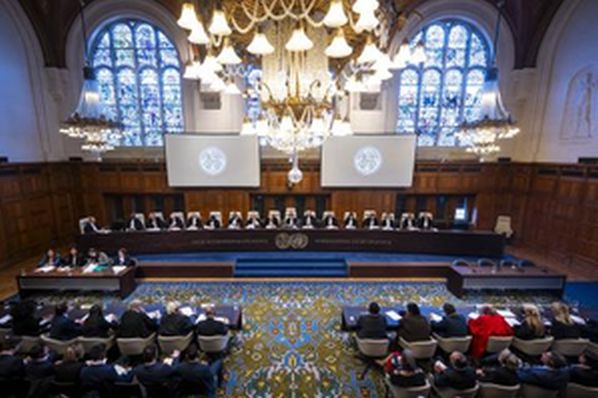
United Nations, Jan 26 (IANS) The World Court on Friday ordered Israel to ensure that its military does not commit any actions that could be genocide in its campaign in Gaza against Hamas, but it did not dictate a ceasefire.
The court, formally known as the International Court of Justice, also ordered Israel to immediately allow “urgently-needed basic services and humanitarian assistance” to the Palestinians of Gaza.
Citing inflammatory rhetoric from some Israeli leaders, the court also ordered Israel to punish and prevent incitement to genocide.
The court, which is based in The Hague, has no way of enforcing its judgments and countries can – and do – flout them.
It also turned down the request of South Africa to order a ceasefire, while considering whether a genocide had been committed.
The interim judgment delivered by the court’s President Joan Donoghue spoke at length about the sufferings of the people of Gaza and the long-term effects of Israeli action.
“The court is acutely aware of the extent of the human tragedy that is unfolding in the region and is deeply concerned about the continuing loss of life and human suffering,” it said.
The court reserved judgment on the crux of the case whether Israel had committed genocide, but said that “in the court’s view, at least some of the acts and omissions alleged by South Africa have been committed by Israel in Gaza appear to be capable of falling within the provisions of the [genocide] convention”.
South Africa, with searing memories of apartheid and the suppression of the majority by the White minority rulers, took on the Palestinian cause, and brought the case against Israel to the court.
South Africa invoked the international convention on preventing genocide to allege that Israel was committing genocide against Palestinians in Gaza, where Israel launched a counterattack after Hamas had attacked it killing about 1,200 people and taking about 240 hostage on October 7.
Israel’s counterattack has led to the killing of about 25,000 people, many of them women and children, and the displacement of about 85 per cent of Gaza’s population of about 2 million.
The judgement noted both the attacks.
The court functions totally independently of the UN, with none of its bodies like the Security Council or the General Assembly having a say other than electing the judges.
Neither does the UN Secretary General has any role in it.
Although its rulings are legally binding, the court does not have the power to enforce its rulings and countries can scoff at them with no consequences.
The 15 judges of the court were joined by two ad hoc judges each appointed by South Africa and Israel under its procedures.
The court issued a set of six orders, four of them relating to preventing what could constitute genocide, and two on procedural matters.
Fifteen judges, including Dalveer Bhandari of India, agreed with all the orders of the court, while Israel’s Judge Ahron Barak dissented on some of them and Julia Sebitunde on all of them.
The two judges did not issue formal dissents.
South Africa cited the deaths of about 25,000 people – most of them women and children – in the Israeli counterattacks and asserted that they “are genocidal in character because they are intended to bring about the destruction of a substantial part of the Palestinian national, racial and ethnical group”.
Israel countered South Africa’s allegations saying that it has the right to self-defence and that it took steps to protect civilians by warning them about bombings in advance so they can move out of harm’s way and even abandoning some sorties when civilians are in danger.
Israeli leaders have reacted with outrage at the suggestion of genocide as the Jewish people were victims of the crime by Nazis in Europe and have found refuge in Israel.
(Arul Louis can be contacted at arul.l@ians.in and followed at @arulouis)




